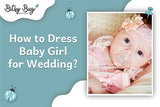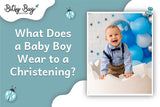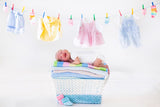Geriatric Pregnancy - Everything You Need to Know
Are you pregnant and over age 35? If so, you may have heard the phrase geriatric pregnancy, and you may have even been insulted by it.
Today, most professionals no longer use this term, as it’s considered both offensive and ageist. Unlike teen pregnancies, they often use advanced maternal age to refer to pregnant women who are 35 or older. Are these pregnancies safe? What are the risks and benefits? Let’s get into what you need to know.

WHAT IS A GERIATRIC PREGNANCY?
Geriatric pregnancy is simply an outdated medical term to refer to a pregnant aged 35 or older. As mentioned, most healthcare professionals rarely even use the phrase.
In the past, it was significantly less common for older women to have babies. In 1972, the average age of a new mother was 21 Today, she’s 28. Approximately 1 in 6 pregnant women in the U.S are older than 35. This isn’t just an American phenomenon- in other developed countries like Japan, Italy, and South Korea, the average age climbs to 31.
A few variables contribute to this phenomenon. First, teenage pregnancies are declining due to an overall decrease in sexual activity coupled with increased use of birth control.
Additionally, many women start their families after completing college and establishing their professional careers. Some don’t feel ready emotionally or financially to have a baby in their twenties. Others want to settle down with their partner.
Finally, couples struggling with infertility have more options than ever before. Treatments like intrauterine insemination and in vitro fertilization can help people have babies in their 30s and 40s.
WHAT ARE THE RISKS?
All pregnancies have inherent risks. While many women have healthy pregnancies and babies, older age can result in complications.
Fertility Issues
All women are born with a set number of eggs in their ovaries. These eggs decrease with age, which makes women less fertile.
A woman’s fertility is highest in her late teens and early twenties. By age 30, it starts declining, and this decline becomes more rapid after age 35. Therefore, opting to start a family later in life could result in a longer time getting pregnant. If you are older than 35 and haven’t been able to conceive for six months, consult with your physician.
Unfortunately, pregnancy losses associated with miscarriage or stillborn births are also more common with older age. By age 30, the risk of a miscarriage is 18%, but it jumps to 40% by age 40. This increased risk results from decreased egg quality, combined with an increased likelihood of maternal medical conditions.

Maternal Health Complications
Older women are more likely to have preexisting health conditions that can impact pregnancy. These conditions include obesity, diabetes, and high blood pressure. They can result in complications like preeclampsia or low birth weight babies.
Additionally, older women are more susceptible to developing high blood pressure and diabetes during pregnancy.
Infant Health Complications
Babies born to older women have a greater risk of having chromosomal abnormalities. By the time a woman is 40, the odds of carrying a child with Down Syndrome is 1 in 85.
Multiple Pregnancy
The chance of carrying twins or triplets increases with age. Research suggests that a combination of hormonal changes and fertility treatments drives this trend.
Some women welcome the idea of carrying multiples. Others have no desire for this kind of family. That’s why it’s essential for women to discuss this risk with their doctor.
C-Sections
Older women are also more likely to deliver their babies via Caesarean delivery. This is likely due to an increased risk of labor complications like excessive bleeding, prolonged labor, and dysfunctional labor that does not advance.
WHAT ARE THE BENEFITS?
Most people will agree that there isn’t a perfect time to have a baby. No matter your age, all babies are tiring, needy, and time-consuming! They require your utmost attention and love!
However, there’s a reason more women are starting their families later in life. That’s because having your first child in your thirties or forties does have some undeniable perks.
Financial Stability
Older first-time mothers tend to have more established careers and savings than their younger counterparts. While babies decrease a woman’s lifetime earning potential, research shows that older age can offset this decline.
There are numerous benefits associated with financial stability and parenting. Women tend to have better healthcare, which results in better prenatal planning. Subsequently, they’re more likely to own a home, car, and other comforts that support a baby’s growth.

Emotional Preparedness
Maturity comes with age, and maturity can be one of the best assets in raising children. Older women may be more confident and laid-back in their parenting than younger women. Because they’ve had more life experience, they also may feel more likely to settle down.
Being In A Relationship
The older a woman is when becoming pregnant, the more likely she is to be in a stable relationship. It’s no secret that stable relationships benefit children emotionally, physically, and financially.
Women with partners undoubtedly enjoy more advantages than single parents. They can share parenting duties, lean on someone else for support, and pool resources together.
Increased Maternal Lifespan
While parenting can be stressful, research shows that women who have their last baby after 35 have increased cognitive and memory skills. Moreover, they’re twice as likely to live to age 95 than women who have their last child before age 30!

TAKING CARE OF YOURSELF WHILE PREGNANT
Pregnancy is a life-changing decision, and it’s not one you should take lightly. It’s crucial to understand both the risks and benefits associated with geriatric pregnancy.
That said, no matter your age, all pregnancies require diligent care. You will need good preconception and prenatal treatment to support a healthy pregnancy. You will also need to ensure that you’re taking care of yourself physically and emotionally.
While pregnant, make sure to attend all appointments. Monitor your mental and physical health regularly. Ask your doctor if you have any questions and voice your concerns if they arise.
Planning for your pregnancy can be both overwhelming at times and also fun if you have the right baby products. If you're pregnant and looking for affordable infant girl rompers, be sure to browse Bitsy Bug Boutique today and see what might spark some creative ideas. Their selection of quality baby products will help you save cash and make your pregnancy that much more special.





